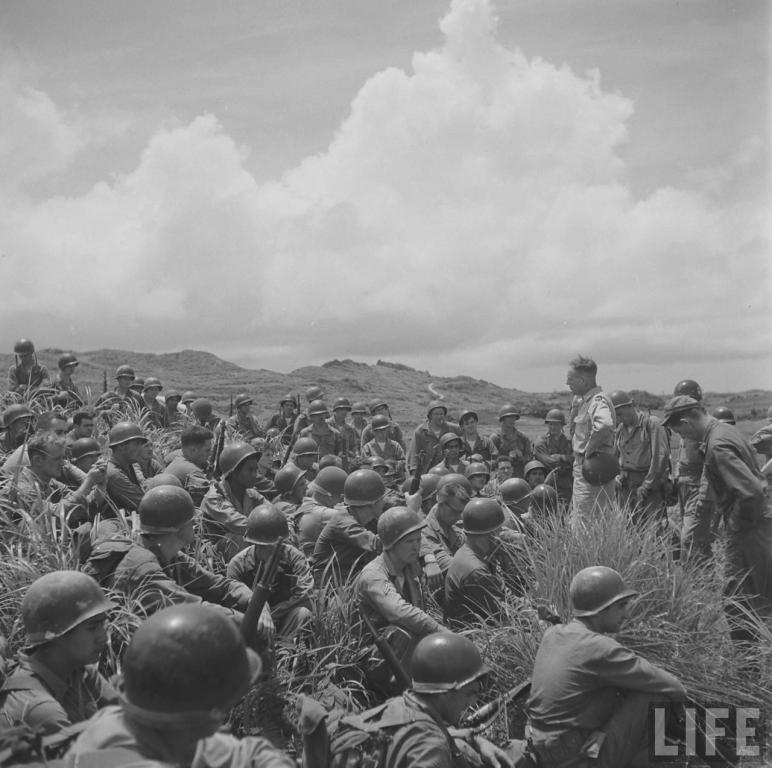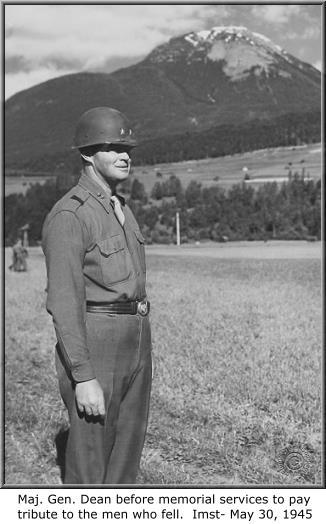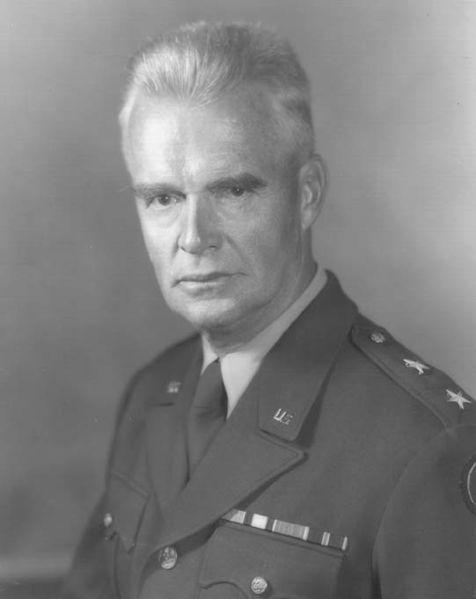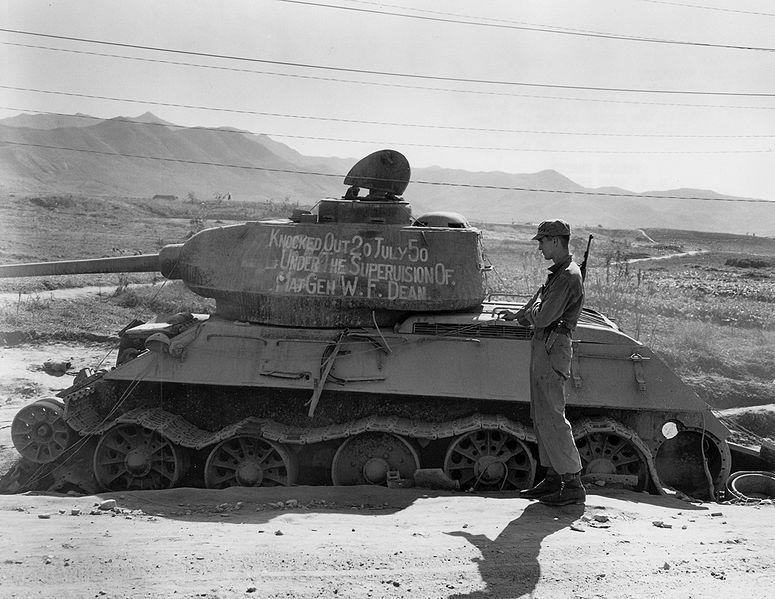-
Contributing Member


14-048 Garand Picture of the Day - Korea
 -Taejon Battle Ground
-Taejon Battle Ground
The Battle of Taejon (14–21 July 1950) was an early battle between American and North Korean forces during the Korean War. Forces of the United States Army attempted to defend the headquarters of the 24th Infantry Division. The 24th Infantry Division was overwhelmed by numerically superior forces of the Korean People's Army (KPA) at the major city and transportation hub of Taejon. The 24th Infantry Division's regiments were already exhausted from the previous two weeks of delaying actions to stem the advance of the KPA.
Army attempted to defend the headquarters of the 24th Infantry Division. The 24th Infantry Division was overwhelmed by numerically superior forces of the Korean People's Army (KPA) at the major city and transportation hub of Taejon. The 24th Infantry Division's regiments were already exhausted from the previous two weeks of delaying actions to stem the advance of the KPA.
The entire 24th Division gathered to make a final stand around Taejon, holding a line along the Kum River to the east of the city. Hampered by lack of communication, equipment and shortage of heavy weapons to match KPA firepower, the American forces being outnumbered, ill-equipped and untrained were pushed back from the river bank after several days before fighting an intense urban battle to defend the city. After a fierce three-day struggle, the Americans withdrew.
Although they could not hold the city, the 24th Infantry Division achieved a strategic advantage by delaying the North Koreans, providing time for other American divisions to establish a defensive perimeter around Pusan further south. The delay imposed at Taejon probably prevented an American rout during the subsequent Battle of the Pusan Perimeter. During the action the KPA captured Major General William F. Dean, the commander of the 24th Infantry Division, and highest ranking American prisoner during the Korean War.


Major General Dean distinguished himself by conspicuous gallantry and intrepidity at the repeated risk of his life above and beyond the call of duty. In command of a unit suddenly relieved from occupation duties in Japan and as yet untried in combat, faced with a ruthless and determined enemy, highly trained and overwhelmingly superior in numbers, he felt it his duty to take action which to a man of his military experience and knowledge was clearly apt to result in his death. He personally and alone attacked an enemy tank while armed only with a hand grenade. He also directed the fire of his tanks from an exposed position with neither cover nor concealment while under observed artillery and small-arm fire. When the town of Tejon was finally overrun he refused to insure his own safety by leaving with the leading elements but remained behind organizing his retreating forces, directing stragglers, and was last seen assisting the wounded to a place of safety. These actions indicate that Maj. Gen. Dean felt it necessary to sustain the courage and resolution of his troops by examples of excessive gallantry committed always at the threatened portions of his front lines. The magnificent response of his unit to this willing and cheerful sacrifice, made with full knowledge of its certain cost, is history. The success of this phase of the campaign is in large measure due to Major General Dean's heroic leadership, courageous and loyal devotion to his men, and his complete disregard for personal safety.
and as yet untried in combat, faced with a ruthless and determined enemy, highly trained and overwhelmingly superior in numbers, he felt it his duty to take action which to a man of his military experience and knowledge was clearly apt to result in his death. He personally and alone attacked an enemy tank while armed only with a hand grenade. He also directed the fire of his tanks from an exposed position with neither cover nor concealment while under observed artillery and small-arm fire. When the town of Tejon was finally overrun he refused to insure his own safety by leaving with the leading elements but remained behind organizing his retreating forces, directing stragglers, and was last seen assisting the wounded to a place of safety. These actions indicate that Maj. Gen. Dean felt it necessary to sustain the courage and resolution of his troops by examples of excessive gallantry committed always at the threatened portions of his front lines. The magnificent response of his unit to this willing and cheerful sacrifice, made with full knowledge of its certain cost, is history. The success of this phase of the campaign is in large measure due to Major General Dean's heroic leadership, courageous and loyal devotion to his men, and his complete disregard for personal safety.

"If the story of my Korean experience is worth telling, the value lies in its oddity, not in anything brilliant or heroic.
There were heroes in Korea, but I was not one of them. There were brilliant commanders, but I was a general captured because he took a wrong road. I am an Infantry officer and presumably was fitted for my fighting job.
I don't want to alibi that job, but a couple of things about it should be made clear. In the fighting I made some mistakes and I've kicked myself a thousand times for them. I lost ground I should not have lost. I lost trained officers and fine men. I'm not proud of that record, and I'm under no delusions that my weeks of command constituted any masterly campaign.
No man honestly can be ashamed of the Medal of Honor. For it and for the welcome given to me here at home in 1953, 1 am humbly grateful. But I come close to shame when I think about the men who did better jobs some who died doing them and did not get recognition. I wouldn't have awarded myself a wooden star for what I did as a commander.
Later, as fugitive and prisoner, I did things mildly out of the ordinary only at those times when I was excited and not thinking entirely straight; and the only thing I did which mattered to my family and perhaps a few others was to stay alive. Other prisoners resisted torture, but I wasn't tortured. Others hid in the hills and finally escaped, but I failed in my escape attempts. Others bluffed the Communists steadily, whereas I was lucky enough to do it only once in a while.
Others starved, but I was fed and even learned to like Kimchee. Others died for a principle, but I failed in a suicide attempt.
My life was an adventure, I did see the face of the enemy close up. I did have time to study his weaknesses and his remarkable strengths, not on the battlefield but far behind his lines. I saw communism working with men and women of high education or none, great intelligence or little and it was a frightening thing.
I ought to know. I swatted 40,671 flies in three years and counted every carcass. There were periods when I was batting .850 and deserved to make the big leagues.
General Dean died on August 25, 1981. General William F. Dean is buried at the Presido of San Francisco along with his wife
Information
 |
Warning: This is a relatively older thread
This discussion is older than 360 days. Some information contained in it may no longer be current. |
|
Last edited by Mark in Rochester; 02-17-2014 at 12:49 PM.
He is no fool who gives what he cannot keep to gain that which he cannot lose
There are no great men, only great challenges that ordinary men are forced by circumstances to meet.
-
The Following 10 Members Say Thank You to Mark in Rochester For This Useful Post:
-
02-17-2014 12:38 PM
# ADS
Friends and Sponsors

-
Advisory Panel


-
-
Contributing Member


-
-
Contributing Member


Quite remarkable, a humble and brave man who thought of others health and safety before his own.
-
-Taejon Battle Ground
Army attempted to defend the headquarters of the 24th Infantry Division. The 24th Infantry Division was overwhelmed by numerically superior forces of the Korean People's Army (KPA) at the major city and transportation hub of Taejon. The 24th Infantry Division's regiments were already exhausted from the previous two weeks of delaying actions to stem the advance of the KPA.
and as yet untried in combat, faced with a ruthless and determined enemy, highly trained and overwhelmingly superior in numbers, he felt it his duty to take action which to a man of his military experience and knowledge was clearly apt to result in his death. He personally and alone attacked an enemy tank while armed only with a hand grenade. He also directed the fire of his tanks from an exposed position with neither cover nor concealment while under observed artillery and small-arm fire. When the town of Tejon was finally overrun he refused to insure his own safety by leaving with the leading elements but remained behind organizing his retreating forces, directing stragglers, and was last seen assisting the wounded to a place of safety. These actions indicate that Maj. Gen. Dean felt it necessary to sustain the courage and resolution of his troops by examples of excessive gallantry committed always at the threatened portions of his front lines. The magnificent response of his unit to this willing and cheerful sacrifice, made with full knowledge of its certain cost, is history. The success of this phase of the campaign is in large measure due to Major General Dean's heroic leadership, courageous and loyal devotion to his men, and his complete disregard for personal safety.



















 PM
PM







